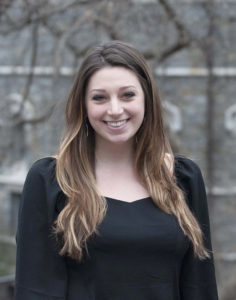
Carina Bonasera
I was 19 years old when I first flew in an airplane. My first flight was a long way from home — about 3,600 miles, from New York to Paris.
In nearly two decades of life, I had never set foot on foreign soil, or breathed air that carried the smells of a culture different than my own. In fact, I had never been more than a couple hundred miles from where I was born.
That used to be my “fun fact,” my go-to phrase during icebreakers and games of Never Have I Ever. It was a winning statement, too, always eliciting gasps of surprise and disbelief from my peers. But even with an almost unbeatable line, I could not ignore what it implied: that I was totally ignorant when it came to other cultures — and ignorance is never truly bliss.
I had always ached to see the world or at least satisfy my curiosity about what it would feel like to step off of an airplane into an unknown place.
This craving for travel intensified as I started college. For the first time in my life, I was meeting people who lived across the country, even across oceans. They were so worldly that they were comfortable attending school thousands of miles from home.
Meanwhile, I had never even seen the other side of my own country. As my new friends shared with me stories set in exotic locations and described adventures I had only ever dreamed about, I started to realize one absurd, terrifying thing: I knew nothing about the world.
I knew nothing about the world in any real sense, at least. Sure, I kept up with the news and could say a handful of words in Spanish, but I was completely unaware of what real life was like outside of the United States. As a child this wasn’t a big deal, but as a young adult emerging into a rapidly globalizing landscape of social media connectivity and political affairs, being ignorant is no longer an option.
It wasn’t until I spent six months living in the suburbs outside of Paris that I had begun to understand a little more about the world. Although France is only one country, and I was experiencing a small part of it, being placed in a foreign environment opened my mind to the entire globe in totally unexpected ways.
Rather than doing simple tasks in the “American” way I previously had, I tried out new ways of living and found that just because I had always done something a certain way didn’t mean it was the only way, or even the best way.
As I became more aware of other lifestyles and belief systems, my perspective of the world transformed. As I experienced social movements and societal reactions in France, I began to see that there are a myriad of ways to live and to respond to one’s environment. I started to think about how the actions of one group of people have the potential to spill over into other countries and cultures and affect them as well.
In short, experiencing life in another country shattered my worldview, so I began piecing together a new one. And this one made room for the people and cultures that I may not understand or be a part of but who share the planet just the same.
Today, we live in a world that is more connected than ever. The internet has made it possible for people thousands of miles apart to communicate in real time. Through social media and other methods, it’s possible to form and maintain relationships without ever meeting the person on the other side of the screen. One might think that this would bring the world closer together, but at times, it almost seems as if we’re more isolated than ever.
I’m not saying that travel is the solution to all the world’s problems. But I do believe that many of the world’s problems — at least those that pit one country or culture against another — stem from a misunderstanding of different perspectives.
The world is complex, but at the most basic level, people are just people. Perhaps if we opened our minds and our hearts, we would begin to see others for what they are — other humans trying to live in this world, just like us.
And perhaps, if we want to make the world more peaceful, putting ourselves in other people’s shoes is a good place to start.
Nine flights, three countries and countless miles later, I’m still trying to find a Never Have I Ever response that even comes close to my former go-to. But by exchanging the comfort of a home I had always known for the wisdom that comes from leaving it, I have gained so much appreciation for others’ experiences. It’s a gift that I wish everyone in the world can have one day.
Carina Bonasera, ’19, is a Data Graphics Editor for The Brown and White. She can be reached at cmb219@lehigh.edu.





Comment policy
Comments posted to The Brown and White website are reviewed by a moderator before being approved. Incendiary speech or harassing language, including comments targeted at individuals, may be deemed unacceptable and not published. Spam and other soliciting will also be declined.
The Brown and White also reserves the right to not publish entirely anonymous comments.
2 Comments
Wow, so sophisticated now.
“The world is complex, but at the most basic level, people are just people. Perhaps if we opened our minds and our hearts, we would begin to see others for what they are — other humans trying to live in this world, just like us.
And perhaps, if we want to make the world more peaceful, putting ourselves in other people’s shoes is a good place to start.” These thoughts are very appropriate, you don’t have to leave the country to put them into action. Practice on the next person who serves you.